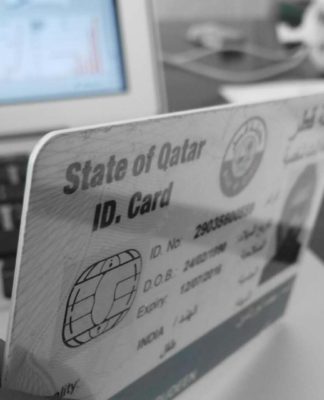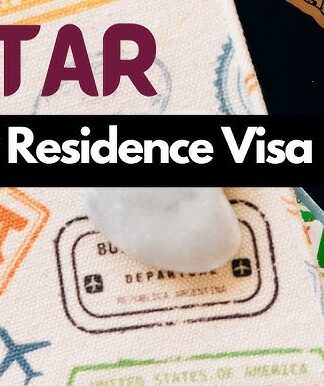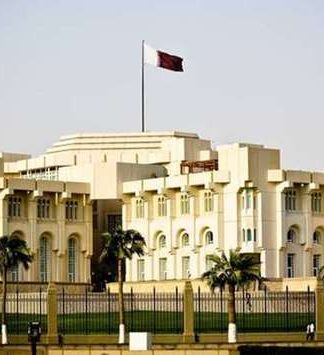POLITICSBOSNIA AND HERZEGOVINA
Bosnians flee corruption and hopelessness
Marion Kraske
11 hours ago11 hours ago
Criminal networks and poor prospects have sparked a mass exodus from Bosnia. Many feel abandoned by the international community.
https://p.dw.com/p/4L01z
Suitcases are packed and tickets are booked. From Sarajevo, Tuzla or Banja Luka, they will head north to Ljubljana, Munich, Vienna or Malmo. But this will be a one-way trip — there are no return tickets for now.
Young people in particular have been emigrating from Bosnia-Herzegovina, among other Balkan states, for years. But the “brain drain” has long been gathering force, becoming a mass exodus. Even those who have good jobs with employers such as international organizations still aim to escape.
Take Hana Curak, a 28-year old who has already been living far away from her Bosnian homeland for a few years, working as a research assistant at the Humboldt University in Berlin. Bosnia lacked a certain understanding for progressive people and activities, she said, adding that the power structures are too entrenched there.
The numbers are alarming: In 1991, Bosnia-Herzegovina had a population of 4.3 million, but now there are only about 3 million inhabitants. Thousands of nurses, physiotherapists and craftsmen are leaving. And according to predictions by the United Nations, the decline will continue, with another 500,000 leaving home by 2050.
Crowd of thousands who gathered to support the Crowd of thousands who gathered to support the
Pro-Serb demonstrations in Banja Luka followed the election in OctoberImage: Armin Durgut/AP Photo/picture alliance
Region defined by poverty, poor health care and corruption
From 1992 to 1995, hundreds of thousands fled the Western Balkan country to escape the atrocities of the Bosnian War. The reasons for the current wave of emigration, on the other hand, are more complex: the desolate economic situation, poor health care, corruption, legal uncertainty and toxic nationalist politics.
The country’s constitution specifically mentions three “constituent peoples” of Bosnia-Herzegovina: the Bosniaks, the Serbs and the Croats. The nationalist parties of each — the Bosniak Party of Democratic Action, the Serb Alliance of Independent Social Democrats and the Croatian Democratic Union of Bosnia and Herzegovina — have divided control of the country and kept the most lucrative jobs among themselves.
People without the right party credentials often don’t stand a chance in the game of personnel poker, and critics complain politicians are only enriching themselves instead of working for the country’s citizens.
Democratic values under fire in Bosnia
Although the Dayton Peace Agreement ended the three-year war in 1995, nationalist dominance was cemented into the status quo at that time. The category of citizen — people who do not belong to any of the defined ethnic groups — was abolished, permanently blocking democratic normalization in the country.
“It is mainly people with civic, democratic convictions who are leaving the country in droves,” said political scientist Tanja Topic, who works in Sarajevo for the Friedrich Ebert Foundation, a pro-democracy organization affiliated with Germany’s center-left Social Democrats. People can’t find their place, as they are marginalized by inflammatory nationalism and criminal structures, she added.
Tanja Topic, a political scientist at the Friedrich Ebert Foundation in BosniaTanja Topic, a political scientist at the Friedrich Ebert Foundation in Bosnia
Tanja Topic is a political scientist and staffer at the Friedrich Ebert Foundation in BosniaImage: Slobodan Rasic
Those in the education system have also been pressed into ethnic categories. “I love my country,” sighed a mother who plans to leave with her youngest daughter. But chaotic politicians and the hatred they spread isn’t what she wants for herself or her children, she added.
Questionable political tactics drive people out
Representatives of the international community have made many appeals to Bosnian politicians to keep their people in the country, which was accepted as a candidate for the European Union on December 13. Yet questionable political tactics by Western negotiators contribute to the very realities that are driving people out.
In the election that took place on October 2, for example, Christian Schmidt, the international peace envoy appointed by the United Nations for Bosnia-Herzegovina, retroactively changed the electoral system. An “undemocratic” act, according to the harsh criticism of EU parliamentarians, which alleged that the electorate had been marginalized in favor of the radical nationalist Croatian Democratic Union of Bosnia and Herzegovina.
Political scientist Topic said massive electoral fraud in the Serb-run part of the country, Republika Srpska, was even “legitimized by the international [community].”
EU candidate status gives Bosnia-Herzegovina a new chance
02:56
A massive loss of confidence in the West
With their attempts to maintain the fragile status quo, Washington, Brussels and Berlin are inadvertently stabilizing corrupt and intolerant rulers. Such maneuvers have led to a massive loss of confidence in the West among Bosnians, who feel abandoned and forced to seek their fortunes elsewhere.
The murder of student David Dragicevic in Banja Luka, which triggered months of protests in 2018, has become emblematic of failures by the international community. Activists in Banja Luka, the capital of Republika Srpska, vehemently demanded that the crime be solved under the slogan “Justice for David.” His parents suspect he fell victim of a drug cartel with connections at the highest political levels.
But the European Union delegation has avoided support for their demands in deference to Serb leader Milorad Dodik, according to one of the politician’s former aides. Powerful entities suspected of involvement in the murder harassed demonstrators until the protests simmered down. The crime remains unsolved to this day.
EU accused of failing to uphold values
Another issue is that rulings by the European Court of Human Rights on discrimination against Jews, Roma and other citizens have not been implemented. Instead of enforcing general civil rights, UN representative Schmidt has established an apartheid system, said civil rights activist Azra Zornic, adding that the EU is failing when it comes to defending its own values in Bosnia.
“When Western actors are no longer perceived as the guarantors of democratic correction, it becomes critical,” said regional legal analyst Lejla Gacanica, adding that many feel abandoned in the fight against criminal elites.
Protests in Sarajevo against Christian Schmidt and the electoral law that he changedProtests in Sarajevo against Christian Schmidt and the electoral law that he changed
In July, protesters in Sarajevo marched against Christian Schmidt and the electoral law changesImage: Klix.ba
Region ripe for radicalization
Disappointment has also spread into neighboring Balkan states. According to the Balkan Barometer, an annual survey of public opinion and business sentiments in six Western Balkans economies, 67% of the younger generation are considering leaving the region.
As they rapidly lose human capital and economic power, cities from Belgrade to Sarajevo are already seeing a shortage of craftsmen. “They’re in Berlin,” people say tersely. Their absence means the already struggling population must pay higher prices for second-rate services.
Under such conditions, the region is becoming more susceptible to further radicalization. “As the bearers of liberal, democratic values disappear, the last resistance to nationalism and abuse of power is also gradually fading away,” warned political scientist Topic.
9 images
9 images
This piece was originally published in German.






























